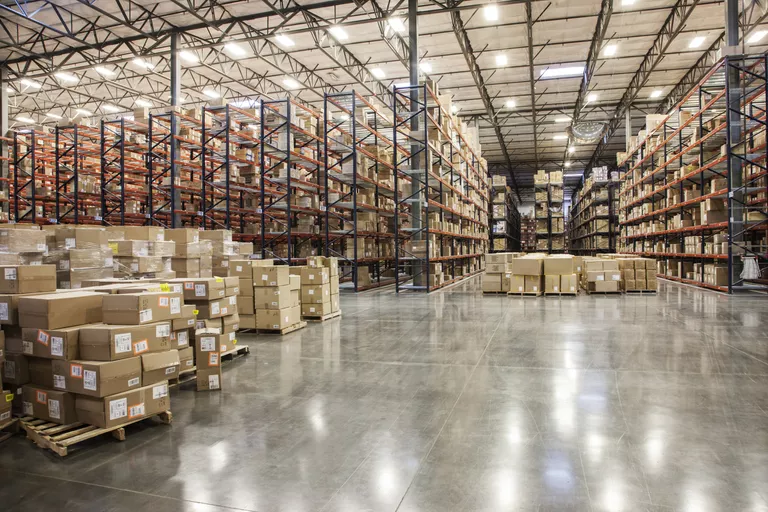
Nagpur, a city located in the heart of India, has emerged as a burgeoning industrial and logistics hub in recent years. One of the key factors contributing to this transformation is the proliferation of warehouses in Nagpur. These storage facilities play a pivotal role in facilitating the smooth flow of goods and materials, which is essential for the growth of various industries in the region. In this article, we will delve into the significance of warehouses in Nagpur, exploring their impact on the local economy, the reasons behind their rapid growth, and the various sectors they serve.
The Rise of Warehouses in Nagpur
Nagpur’s strategic geographical location makes it an ideal destination for warehouses. Situated at the crossroads of major highways, railways, and air routes, Nagpur serves as a critical transit point for goods traveling across India. This advantage has spurred the development of warehouses, turning the city into a logistics hotspot.
Catalyst for Economic Growth
Warehouses in Nagpur have become essential cogs in the wheel of economic growth, both at the local and national levels. Here are some key ways in which they contribute to economic development:
a. Job Creation: The establishment and operation of warehouses create employment opportunities for local residents. From forklift operators to logistics managers, these facilities require a diverse workforce, thus reducing unemployment rates in the region.
b. Enhanced Trade: Nagpur’s warehouses facilitate the movement of goods, enabling businesses to meet consumer demands efficiently. This, in turn, boosts trade and contributes to a higher GDP.
c. Improved Connectivity: The presence of warehouses enhances connectivity within and outside Nagpur. This connectivity is crucial for industries that rely on the timely delivery of raw materials and finished products.
Sectors Benefitting from Nagpur’s Warehouses
Warehouses in Nagpur cater to a wide range of industries, each with its specific needs. Some of the prominent sectors that benefit from these facilities include:
a. Agriculture: Nagpur is surrounded by fertile agricultural land, making it a hub for storing and distributing agricultural produce. Grains, pulses, and spices are among the commodities stored in these warehouses.
b. Manufacturing: Manufacturing units require a constant supply of raw materials and a place to store finished products. Nagpur’s warehouses provide the necessary storage infrastructure for manufacturers in various sectors.
c. Retail: With the growth of e-commerce, retailers need efficient storage solutions. Warehouses in Nagpur serve as distribution centers for e-commerce giants and brick-and-mortar stores alike.
d. Automotive: Nagpur is home to several automotive manufacturers and suppliers. Online warehouse booking play a critical role in managing the inventory of parts and components needed for assembly.
e. Pharmaceuticals: The pharmaceutical industry relies on warehouses for the storage of drugs, vaccines, and medical supplies. Nagpur’s warehouses meet these critical requirements, ensuring the availability of healthcare products.
Factors Driving the Growth of Warehouses in Nagpur
Several factors have fueled the rapid growth of warehouses in Nagpur:
a. Government Initiatives: The Indian government’s push for the development of logistics infrastructure, including the creation of logistics parks and dedicated freight corridors, has attracted investment in warehousing.
b. GST Implementation: The implementation of the Goods and Services Tax (GST) has streamlined the movement of goods across state borders, making Nagpur an ideal location for warehousing and distribution.
c. Increased Consumer Demand: The rise in consumer demand, especially in Tier II and III cities, has necessitated efficient warehousing solutions. Nagpur’s central location allows businesses to reach these markets effectively.
d. Foreign Direct Investment (FDI): FDI in logistics and warehousing has witnessed substantial growth in India. This influx of foreign investment has accelerated the expansion of warehousing facilities in Nagpur.
Challenges and Future Prospects
While Nagpur’s warehouses hold immense potential, they also face certain challenges:
a. Infrastructure: The city needs continued investment in infrastructure to support the growing demand for warehousing. This includes better road connectivity, modern storage facilities, and improved transportation networks.
b. Skilled Workforce: The warehousing industry requires a skilled workforce for efficient operations. Training and development programs are needed to meet this demand.
c. Sustainability: Warehouses should adopt sustainable practices to minimize their environmental impact. Energy-efficient technologies and eco-friendly construction materials can help address this concern.
Despite these challenges, Nagpur’s warehouses are poised for a promising future. As the Indian economy continues to grow, the demand for efficient logistics and storage solutions will only increase. This presents a wealth of opportunities for further expansion and innovation in the warehousing sector.
Also Read: The Growth and Significance of Warehouses in Sonipat: A Booming Hub for Logistics
Conclusion:
Warehouses in Nagpur have evolved from being mere storage spaces to integral components of the city’s economic landscape. They play a pivotal role in facilitating trade, supporting various industries, and driving job creation. With the right investments in infrastructure and a focus on sustainability, Nagpur’s warehouses are well-positioned to meet the evolving demands of India’s growing economy. As this trend continues, Nagpur will solidify its reputation as a logistics and warehousing powerhouse in the heart of India.